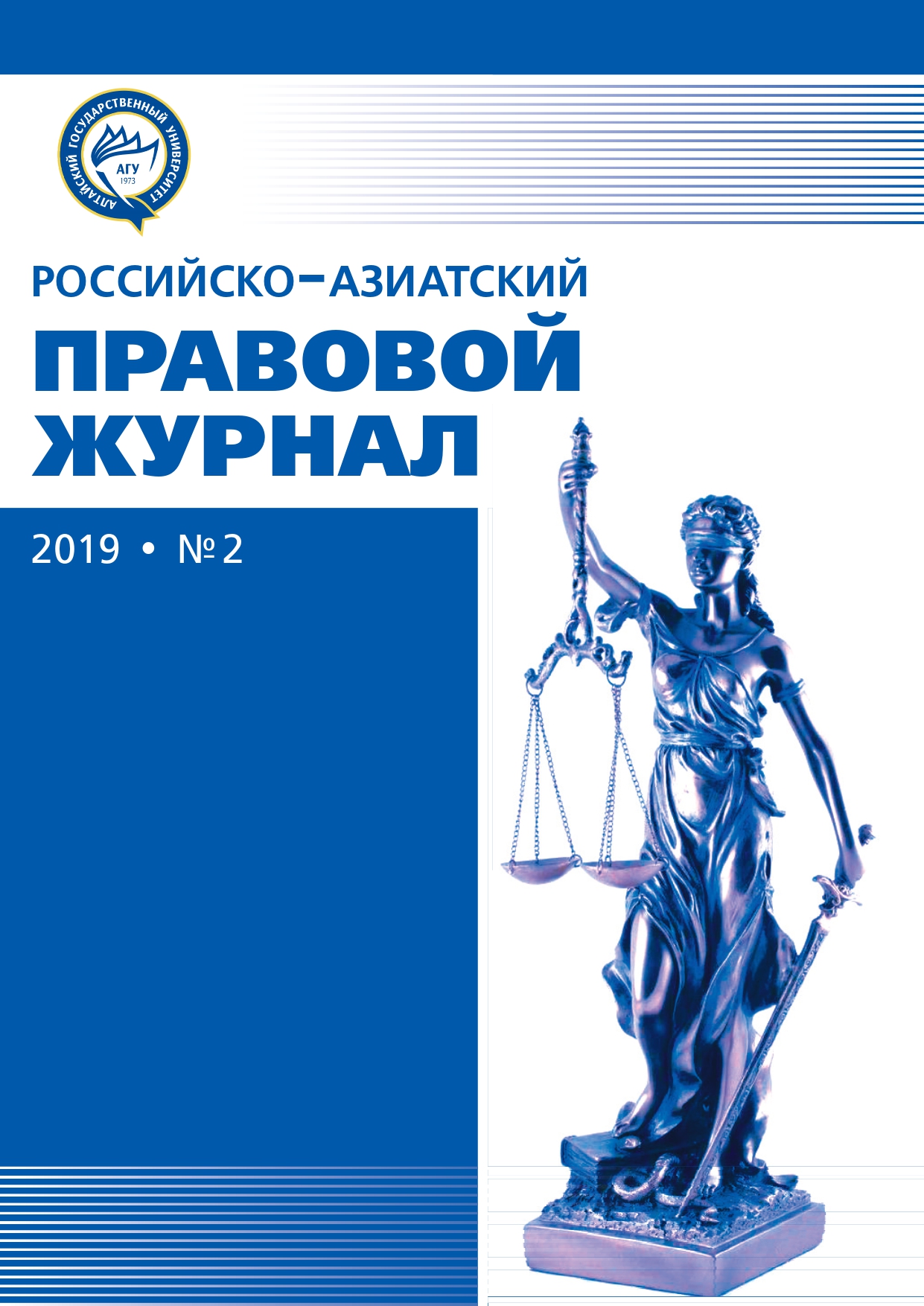ON THE ISSUE OF NATIONAL AND SUPRANATIONAL LEGAL REGULATION OF SCIENTIFIC AND TECHNICAL COOPERATION OF THE SCO MEMBER STATES
УДК 341.01 ББК 67.99
Abstract
Based on the analysis of domestic and international legal regulation of scientific and technical relations,its features and trends in the SCO countries are revealed. It is concluded that there are both universal featuresof such regulation in various countries and international organizations, and specific features inherent in theSCO and its member countries.
Downloads
References
Шанхайская организация сотрудничества: новые приоритеты развития : монография /
Т.Я. Хабриева, О.И. Тиунов, Н.М. Бевеликова и др. ; отв. ред. Т.Я. Хабриева. М., 2015. 304 с.
Действующие международные соглашения о научно-техническом сотрудничестве. М., 2009. 251 с.
Hart H.L. A. The Conceprt of Law. Second Edition. Oxford, 1994. 315 p.
Лукашук И.И. Международное право. Особенная часть : учебник для студентов юридических
факультетов и вузов. 3-е изд., перераб. и доп. М., 2007. 544 с.
Russian-Asian Law Journal is a golden publisher, as we allow self-archiving, but most importantly we are fully transparent about your rights.
Authors may present and discuss their findings ahead of publication: at scientific conferences, on preprint servers, in public databases, and in blogs, wikis, tweets, and other informal communication channels.
Russian-Asian Law Journal allows authors to deposit manuscripts (currently under review or those for intended submission) in non-commercial, pre-print servers such as ArXiv.
Authors who publish with this journal agree to the following terms:
- Authors retain copyright and grant the journal right of first publication with the work simultaneously licensed under a Creative Commons Attribution License that allows others to share the work with an acknowledgement of the work's authorship and initial publication in this journal.
- Authors are able to enter into separate, additional contractual arrangements for the non-exclusive distribution of the journal's published version of the work (e.g., post it to an institutional repository or publish it in a book), with an acknowledgement of its initial publication in this journal.
- Authors are permitted and encouraged to post their work online (e.g., in institutional repositories or on their website) prior to and during the submission process, as it can lead to productive exchanges, as well as earlier and greater citation of published work (See The Effect of Open Access).








